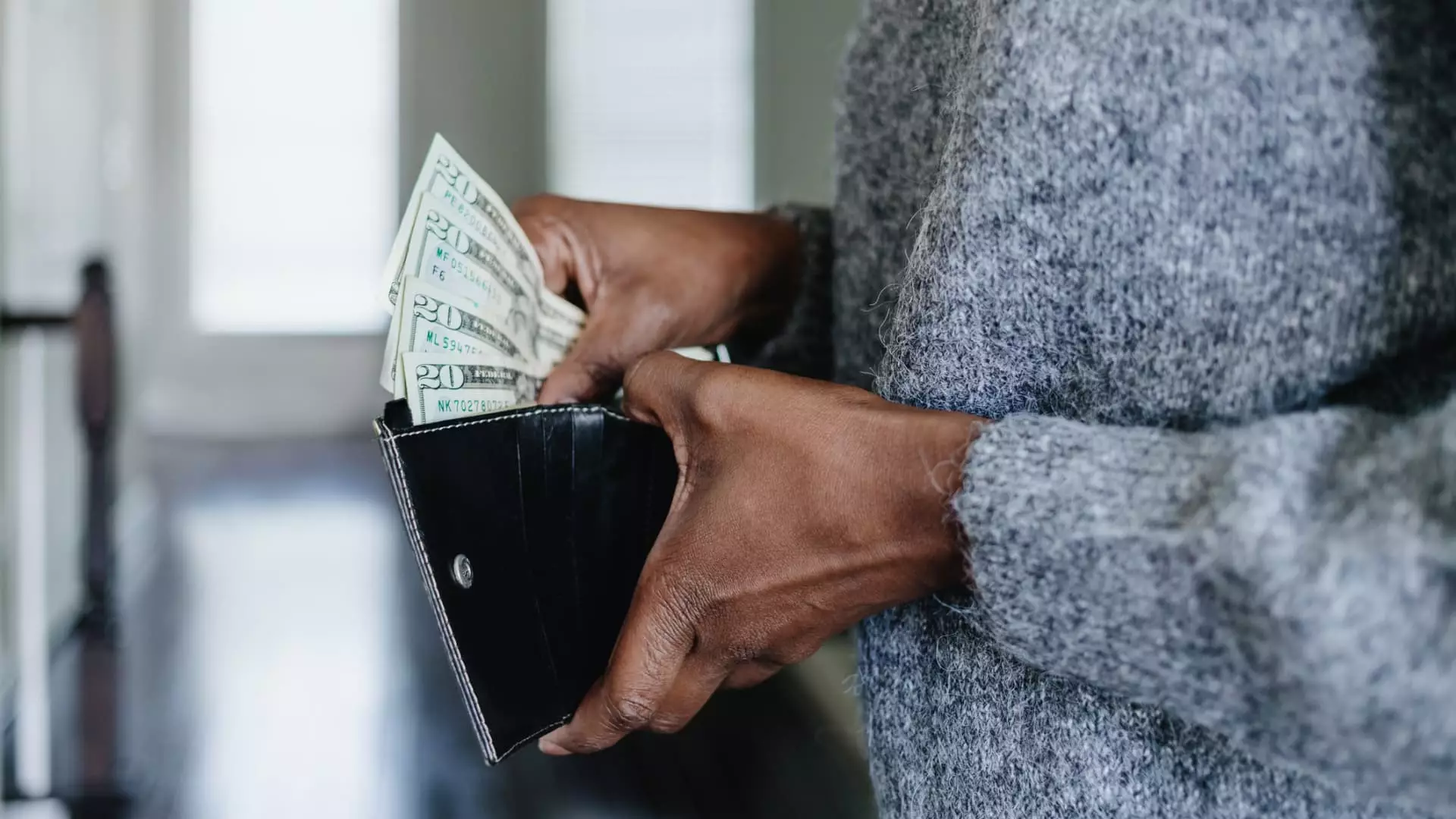In a striking reversal from the post-pandemic spree often dubbed “revenge spending,” a growing number of Americans are embracing what might be called “revenge saving.” Rather than splurging to make up for lost social and retail experiences, many consumers are now aggressively cutting back their discretionary expenditures and bolstering their savings. This shift isn’t just a mild change in habit—it represents a broader psychological and economic recalibration driven by intensifying anxieties about tariffs, inflation, job stability, and unpredictable market conditions.
The data exposed by the Bureau of Economic Analysis starkly contrasts with the previously carefree consumer behavior. The personal saving rate, which had hovered around 3.5% late last year, surged to 4.9% in April and still maintained a high 4.5% in May. These numbers reveal more than cautious thrift; they expose a collective desire for financial resilience and autonomy in a world where economic certainty feels ever more elusive.
Social Media and the New Culture of Financial Discipline
What’s particularly fascinating is the grassroots nature of this growing thriftiness. Platforms like TikTok and Reddit, traditionally associated with fleeting trends and impulsive behavior, have become hotbeds for financial discipline challenges. The “no buy” movement—where participants vow to refuse non-essential purchases and eliminate subscription services—has gone viral. It’s a democratized, peer-driven pushback against consumerism and economic vulnerability.
These challenges reflect a deeper cultural transformation facilitated by social media, where collective accountability and real-time advice empower individuals to prioritize financial health. This digital communal approach to saving reframes financial prudence as a form of self-care and social participation, counteracting the isolation and uncertainty many feel today.
Financial Wellness: More Than Just Numbers
Vanguard’s recent survey underscores the earnest mindset behind these efforts: 71% of Americans are set to rethink their priorities, putting emergency funds and liquidity above other financial goals. This shift is also psychologically significant. Dina Caggiula of Vanguard highlights how financial anxiety weighs heavily, with the average American spending nearly seven hours weekly worrying about money. Yet sufficient emergency savings can reportedly halve this mental toll, illustrating that saving is not just a matter of dollars, but a critical pillar of wellbeing.
Advisors recommend a safety net equaling three to six months of living expenses, but in a volatile job market, this may be insufficient, especially for single-income families or those with irregular income streams. From a center-liberal vantage, this collective move to guard against financial shocks seems rational and responsible, reflecting a demand that economic systems provide more stability and predictability for ordinary people.
The Broader Economic Context Behind the Cautious Consumer
This defensive financial posture is not born out of paranoia alone. Prolonged uncertainty in trade policies, stubborn inflationary pressures, and sustained higher interest rates have not only squeezed budgets but also damaged confidence. Americans are taking no chances, accumulating liquid assets as a buffer against potential cost spikes or income disruptions. Charlie Wise from TransUnion describes this behavior as anticipatory rather than reactionary—a strategic defense preparing households for future challenges rather than panic-driven hoarding.
Additionally, this newfound thriftiness extends beyond immediate consumption. Retirement contributions, especially to 401(k) plans, have reached record highs, as reported by Fidelity. Employers facilitating automatic enrollment and contribution escalations make it easier for workers to save consistently, which is crucial in an era where social safety nets often feel inadequate. This trend toward increased retirement savings reflects both prudence and a sober acknowledgement that individuals must take greater responsibility for their financial futures.
What Revenge Saving Reveals About American Society
The phenomenon of revenge saving is a window into broader societal shifts. It highlights a pushback against decades of consumer debt dependence and the precariousness that comes with it. While capitalism thrives on consumption, this emerging trend suggests a collective recognition that sustainability is equally vital—both financially and socially.
Yet, there’s a nuanced critique here. This belt-tightening could exacerbate economic sluggishness if large swathes of consumers withdraw from spending. It reveals the tension between individual responsibility and systemic shortcomings. On the one hand, individuals reclaim agency through saving; on the other, it underscores a failure by institutions and policymakers to provide stable, equitable economic conditions that reduce the need for such defensive behavior.
In my opinion, this moment is ripe for policymakers to respond with measures that stabilize inflation, protect jobs, and transparently manage trade policies. Encouraging saving is positive, but it shouldn’t come at the cost of economic vitality or social equity. Americans deserve an economy where saving isn’t a defensive last resort but part of a confident, stable financial life.


Leave a Reply